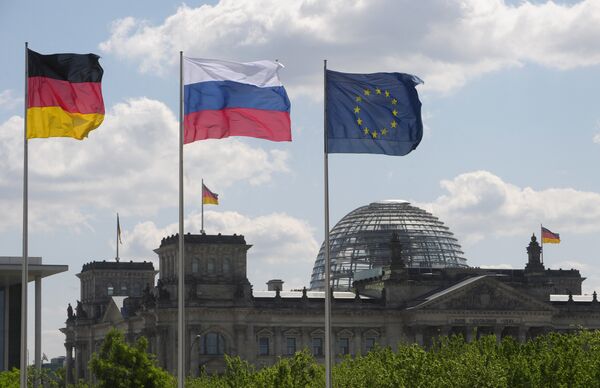BRUSSELS, August 7 (RIA Novosti) - The European Union can not turn its back on direct dialogue with the former Georgian republics of South Ossetia and Abkhazia, Russia's envoy to the EU said.
During a press conference with Russian journalists on the eve of Georgia's attack on South Ossetia on August 8, Vladimir Chizhov said that dialogue between the EU and the leaders of South Ossetia and Abkhazia, as well as Georgia and Russia are taking place as part of the Geneva talks, where the EU is the co-chair.
"Today everyone in the European Union understands that they can not turn their backs on direct dialogue with the leaders of Abkhazia and South Ossetia. As far as I know, discussions are continuing in the EU on how to arrange them," Vladimir Chizhov said.
Russia and Georgia fought a brief war after Tbilisi attacked South Ossetia in an attempt to restore control of the territory. Russia, which had peacekeepers in the region, repelled the attack and later recognized South Ossetia and Abkhazia, another breakaway republic, as independent states.
"Regardless of whether or not they recognize their independence, the European Union continues working in 'unrecognized' territories," Chizhov said, pointing to Kosovo, Cyprus and Taiwan as examples.
With regard to EU relations with Georgian President Mikheil Saakashvili's regime, Chizhov said that it was "somewhat sober." Saakashvili has maintained that he ordered troops to attack after Russian tanks approached a two-mile tunnel linking Russia with South Ossetia. A claim Russia has repeatedly dismissed.
"Overall, [EU relations] differ from those we see in Washington. If you've noticed, Saakashvili is not invited to most European capitals on official visits," he said.
Chizhov said several months ago "it became clear to all serious people in the EU" why Russia reacted as it did during the conflict, adding that there are no questions anymore regarding Georgia's aggression.
"The disproportionate use of force [against the Georgian military] isn't even discussed any more. What is discussed is why did [Russia] recognize the republics."
Besides Russia, Nicaragua has recognized the independence of both Abkhazia and South Ossetia.
Chizhov said that Moscow expects to continue cooperation with the EU in order to establish peace and stability in the region.
"We welcome the EU's decision to continue its observer mission," he said, adding: "Russia, naturally, is not pressuring [EU members] politically to recognize the republics."
An international committee investigating the Georgia-Russia conflict has delayed a report on the war until September, although Germany's Der Spiegel paper recently cited a committee member as saying that the majority had come to the conclusion that Georgia started the war.
The next round of Geneva talks are due to take place in September.




